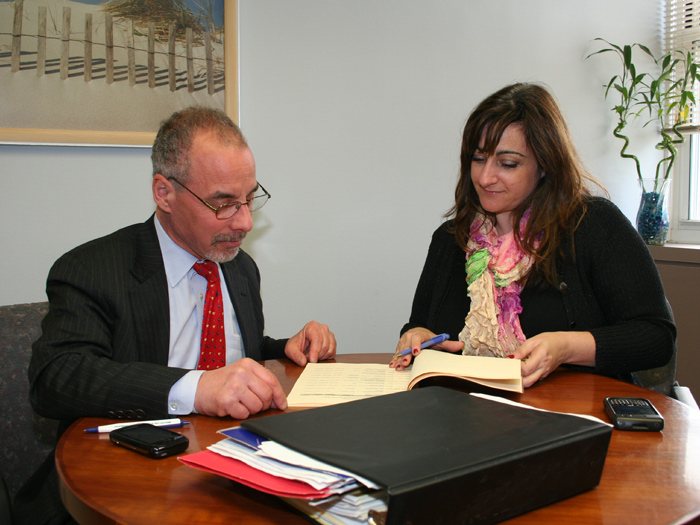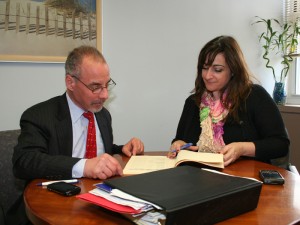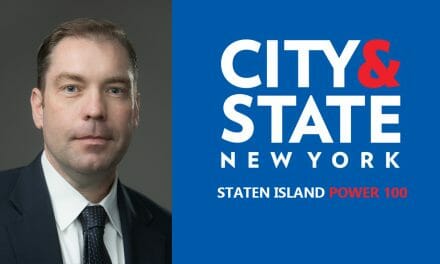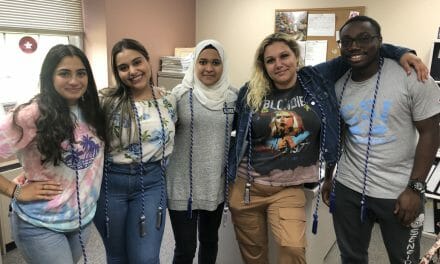Recently, the Department of Education at the College of Staten Island decided to apply for a grant for Project S.P.E.L.L., an alternative certification program in special education and English language learning that seeks to create highly effective educators for local high-need elementary and middle schools. Upon learning that there would be an appropriate grant to be announced shortly, Department of Education Chair David Bloomfield took advantage of the expertise of the College’s Office of Sponsored Projects and Research to begin the process that would lead to the crafting of an effective grant proposal.
Speaking of the grant, Prof. Bloomfield notes that it “came out of the Obama Administration’s “Race to the Top” initiative, so as an education funding matter it’s something that I’ve been attuned to for quite a while.”
Once OSPR had been brought into the picture, Lisa Ebert, OSPR Director and her staff “met with key stakeholders on campus—the people we thought were potentially interested and might be involved with this grant. Although we didn’t have the RFP in our hands yet, we brainstormed different ideas, identified who might be effective in this process, and which elementary schools might be involved outside the College. Once we ascertained that there was interest in this, that this was definitely something that we wanted to do, we waited for the application to come out. Once it did, we began meeting regularly and narrowed down the scope of the proposal in terms of partners and the focus. We had less than six weeks from the time that we learned of the RFP until it was due. We convened the core team of Profs. Gail Rosenberg, Greg Seals, and Deidre Armitage, as well as OSPR staff and Prof. Bloomfield.
During this time, Ebert reports that a major focus of the process involved digesting the RFP and then working with everyone involved to create an effective proposal. “Toward the last few weeks,” she recalls “it involved reading, editing, pulling out, putting back in, developing the additional attachments.”
Although the proposal is still under consideration, Prof. Bloomfield comments that he is pleased with the collaboration between his department and OSPR. “I think it was extraordinarily strong as a collaboration—efficient and effective. We’re close collaborators, particularly on the nuts and bolts of drafting the proposal. We [in the Education Department] have the program information and vision, and Lisa’s operation knows how to construct a winning proposal.” Prof. Bloomfield calls OSPR’s contribution the “muscle” behind the proposal.
So, as this proposal is under review, why should other faculty who are seeking external funding take advantage of what the OSPR has to offer?
Ebert states that “Sometimes there is a fear, hesitancy, and resistance to undertake a grant writing project of this scope because it’s a lot of work and grant writing and budgets tend to be very challenging for a lot of people. Also, faculty members are already so busy teaching and doing research that its very hard to find the time What we want to demonstrate that if we all contribute something, depending on what we have to offer, it is actually very doable and the reward is that everybody really learns a lot.
“I learned a lot about the New York Board of Regents and this particular program and the history,” Ebert added, “and I think that everyone working on the grant learned that they can write and edit … I know that they got excited about it. David facilitated the whole thing, empowered everyone, and took it up into the administration and had the appropriate sign-offs at that level. So, everyone worked together and it was a great experience.”
Ebert added that whether the proposal is successful or not [awards will be given in the spring], the players involved will also receive invaluable feedback so that they can fine-tune the proposal for other funding opportunities.
Prof. Bloomfield sums up the significance of collaborations with the OSPR, beyond the creation of a solid and effective proposal. “It builds a funding culture in the department and in the College in general.” In these tough economic times, this is a mindset that is crucial to the advancement of education.



![[video] Institutional Rules and Freedom of Choice: Who is the true architect of freedom?](https://csitoday.com/wp-content/uploads/2014/09/cass.sunstein.jpg)














